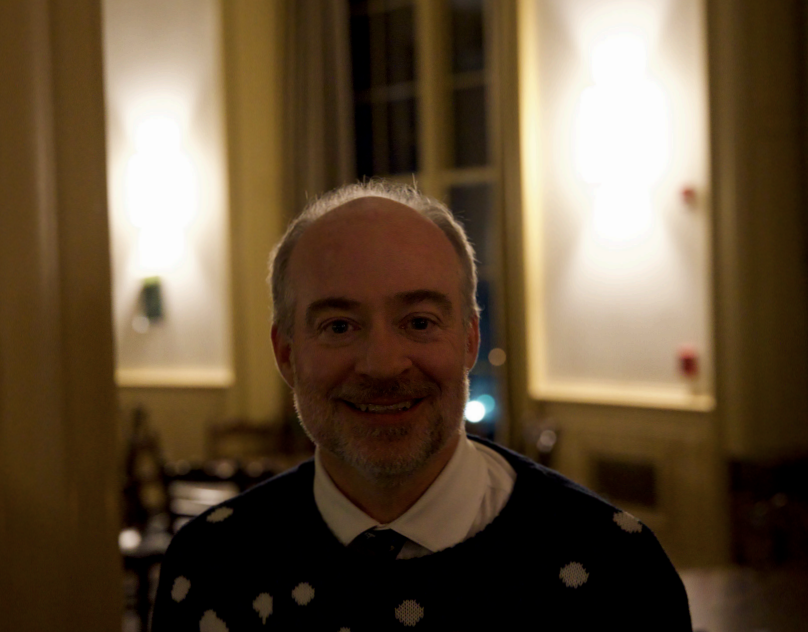Late-night essays. Recommendation letters. Forms and fees. Amidst a whirlpool of activities and tasks, the college application process can overwhelm Deerfield students, but the Deerfield College Advising department can help.
Although “the college application process seems daunting at first,” Xavier Armas ’24 said, college advisors begin holding group informational sessions during students’ sophomore year. In mid-November, college advisors also start meeting one- on-one with juniors to support their application journey early on.
Dean of College Advising Mark Spencer believes college advisors act as “matchmakers” to help students discover and voice their identities and ultimately match with schools.

Mr. Spencer abides by the mantra, ‘It’s a match to be made, not a prize to be won’ in regards to the college process. He came across the quote from a counselor who used to work at The Blake School in Minneapolis.
Mr. Spencer emphasized the significance of discovering personal identity in the matchmaking process: “When you’re trying to find that match, it’s important for us [college advisors] to help the kid identify themselves.”
During one-on-one meetings, college advisors ask students questions to reflect on their interests and uncover what students hope to gain from college. Mr. Spencer said, “The college process really is about a year-long self-exploration and discovery process.”
While each college advisor has their own methodology for questions, the College Advising department specifically uses the Naviance system. The system includes a self-exploration tool called StrengthsExplorer, which is a questionnaire that provides insight on ways to play into a student’s strengths.
Mr. Spencer said, “I like the personal inventory tool [StrengthsExplorer] because it doesn’t say you’re not strong at something. It’s more of an optimistic, positive side and it just says your strengths…some careers…some activities that you can get involved with.”
In addition, college advisors help expand and balance the options on students’ college lists. Margaret Melnik ’24 explained how her college advisor broadened the types of colleges she was considering. She said, “My college advisor is really helpful with recommending certain colleges, keeping our expectations pretty open with a lot of different ranges of colleges.”
Alice Zhang ’24 also had her college outlook expanded. She added, “they [college advisors] are really helpful for giving you ideas about what schools you might want on your list.”
In addition, students highlighted how college advisors helped provide feedback on their application essays. Zhang said, “A big part of what college advisors are for is reading your essays… because they’ve already read so many essays of previous students and they know what works.”
Elizabeth Richards ’24 described how her college advisor gave good advice on her essays when working together over the summer, saying, “Early in the summer, we were talking about crafting a good personal statement. I wrote one with a bunch of content that I liked, but it didn’t feel like me. She told me to ‘Elizabeth-ify’ it, and that’s exactly what I did. I’m pretty happy with it now.”
On the other hand, some students recognized the busy lives of the college advisors. According to Mr. Spencer, scheduling one- on-one advisor meetings can be challenging because there are limited times to meet during the school day.
Melnik said, “more resources could help because the college advisors are really busy, so they don’t really have a lot of availability to read all of their students’ essays thoroughly.”
“We have to email [college advisors] for the signup link, and it’s usually pretty full,” Richards said. “It’s really important to strike up a rapport…that can be pretty difficult given the amount of stuff that the college advisors have to do.”
Overall, many of the college advisors love helping students grow academically and personally, as noted by Mr. Spencer who said he loves being a college counselor because he can “help students discover and uncover themselves and their passions – and get to watch their growth up close.” He enjoys working with students to find nuanced joy in the application process and “see the potential that young people have,” he said.
As for tips for applicants, Mr. Spencer suggests not to “come in with a lot of preconceived notions.” Instead, he encourages students to be “open to discovering who [they] are, and then hold on to it for dear life.”

